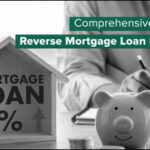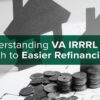When it comes to financing a home purchase, borrowers often encounter terms like “conforming” and “non-conforming” loans. These terms dictate not only the borrowing limits but also the eligibility criteria and interest rates associated with the loans. In this detailed guide, we will unravel the differences between conforming and non-conforming loans, their implications for borrowers, and provide actionable insights to help you navigate the mortgage landscape effectively.
What Are Conforming Loans?
Conforming loans are mortgages that adhere to the guidelines set by Fannie Mae and Freddie Mac, the two government-sponsored enterprises (GSEs) that provide liquidity and stability to the mortgage market. These loans typically have lower interest rates and are easier to qualify for because they conform to the GSEs’ standards regarding loan limits, borrower creditworthiness, and debt-to-income ratios.
Pro Tip: Check the current conforming loan limits in your area, as they are adjusted annually. For 2024, the baseline conforming loan limit is set at $647,200, but it can be higher in high-cost areas.
Benefits of Conforming Loans.
One of the primary advantages of conforming loans is their lower interest rates compared to non-conforming loans. This is because these loans are considered less risky for lenders due to their adherence to standardized guidelines.
Conforming loans also offer flexibility in terms of repayment options and can be ideal for borrowers with strong credit histories and stable incomes.
Types of Conforming Loans.
Within the realm of conforming loans, there are different types, including conventional fixed-rate mortgages and adjustable-rate mortgages (ARMs). Conventional fixed-rate mortgages offer stable monthly payments, while ARMs provide initial lower interest rates that adjust periodically based on market conditions.
Pro Tip: Assess your financial goals and risk tolerance to determine whether a fixed-rate mortgage or an ARM is more suitable for your situation.
What Are Non-Conforming Loans?
Non-conforming loans, also known as jumbo loans, exceed the loan limits established by Fannie Mae and Freddie Mac. These loans are typically used to finance high-value properties that exceed the conforming loan limits.
Due to their larger loan amounts and varying eligibility requirements, non-conforming loans often come with higher interest rates and stricter approval criteria.
Pros and Cons of Non-Conforming Loans.
While non-conforming loans allow borrowers to finance expensive properties that wouldn’t qualify for conforming loans, they can be more challenging to obtain due to their higher risk profile for lenders.
Pro Tip: Prepare for a more rigorous application process for non-conforming loans by ensuring a strong credit score, substantial down payment, and stable income history.
Factors Influencing Loan Approval.
Whether applying for a conforming or non-conforming loan, several factors influence your eligibility and interest rates. These factors encompass your credit score, debt-to-income ratio, employment history, and down payment size.
Pro Tip: Improve your credit score and reduce your debt-to-income ratio before applying for a mortgage to increase your chances of securing a favorable interest rate.
Choosing Between Conforming and Non-Conforming Loans.
When deciding between conforming and non-conforming loans, consider factors such as the loan amount, your financial situation, and your long-term homeownership goals.
Pro Tip: Consult with a mortgage advisor to explore all available options and determine the loan type that best fits your needs and budget.
Conclusion: Navigating the Mortgage Maze.
Understanding the differences between conforming and non-conforming loans empowers you to make informed decisions when financing your home purchase. Whether opting for a conforming loan with its standardized terms and lower rates or a non-conforming loan for higher-value properties, careful planning and preparation are key to securing a mortgage that aligns with your financial goals.
By leveraging these insights and pro tips, you can navigate the mortgage maze with confidence, ensuring a smooth and successful path towards homeownership.















